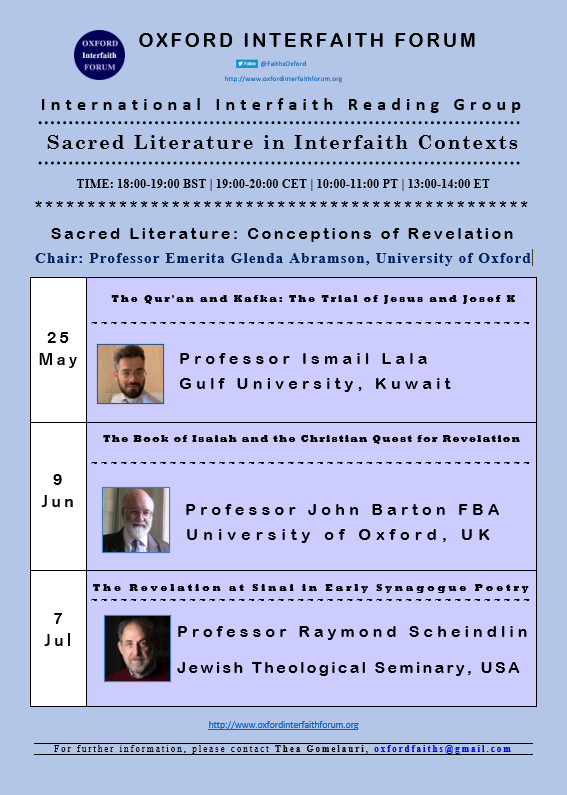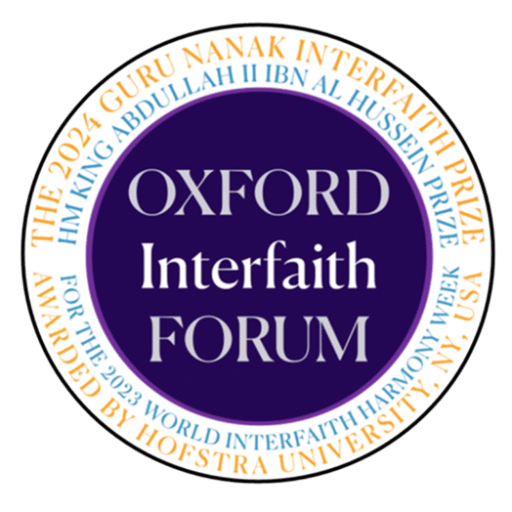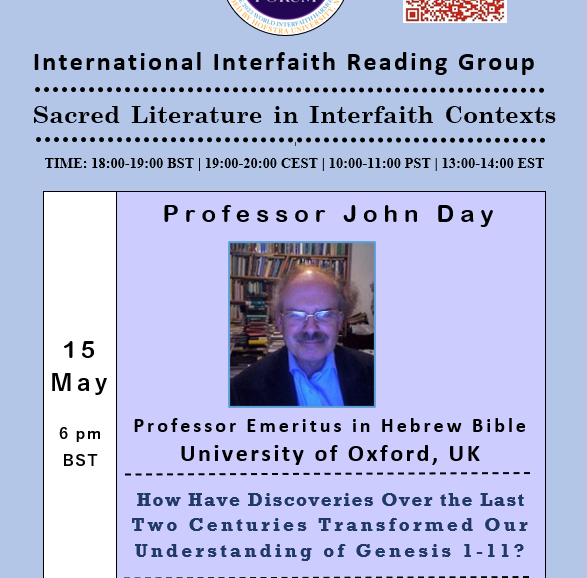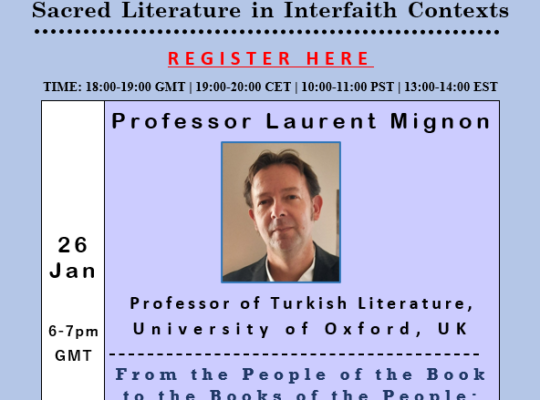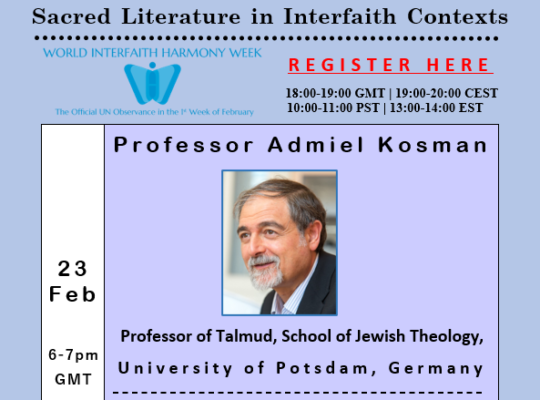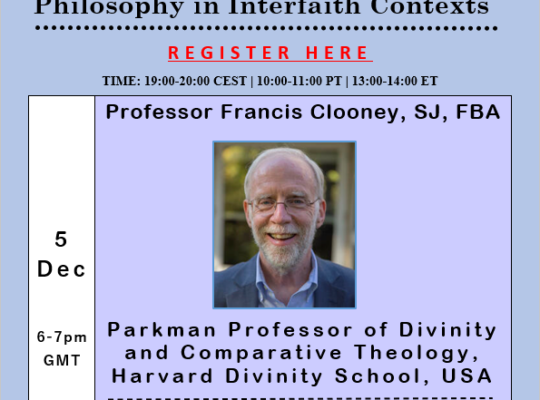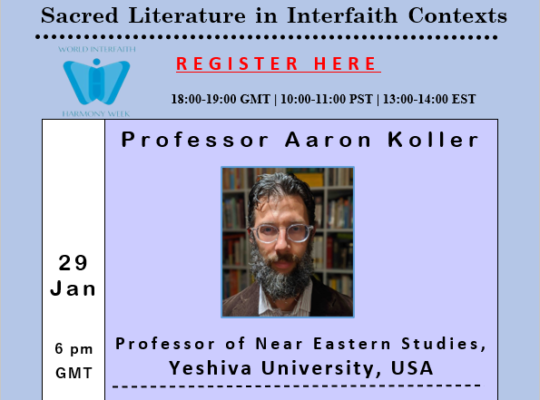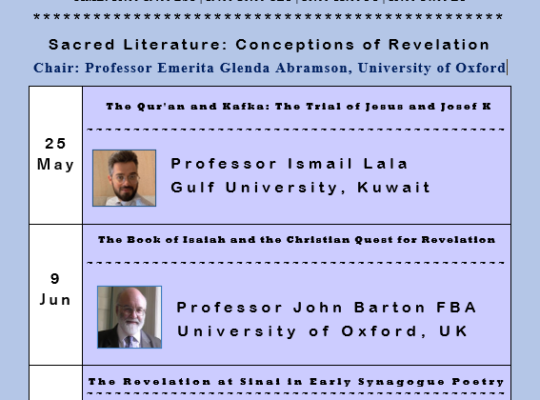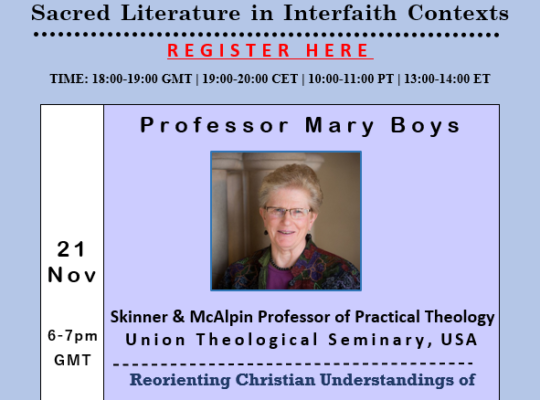15 May, 2025
We are deeply honoured to welcome Professor John Day, Emeritus Professor of Hebrew Bible at the University of Oxford, UK, to lead a session of the Sacred Literature in Interfaith Contexts Reading Group.
Or Scan the QR Code below

Here are more details of this fascinating event.
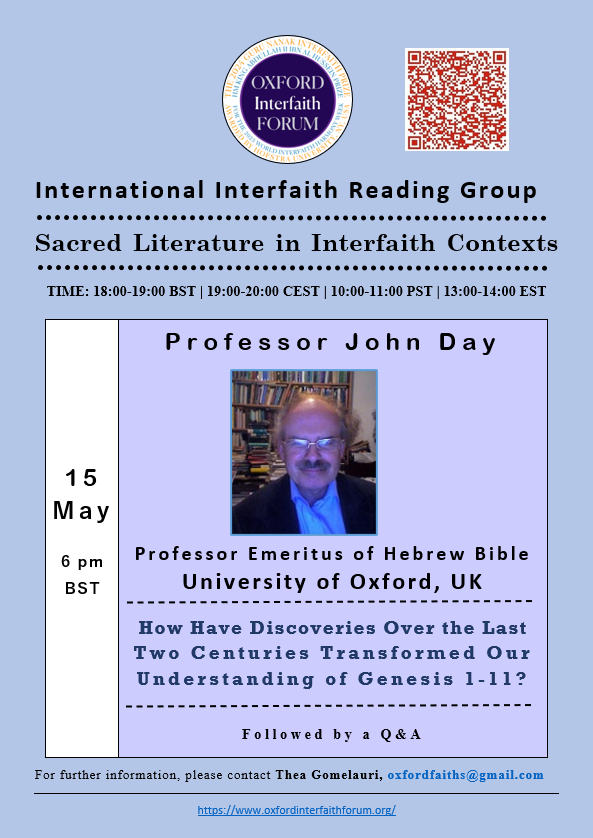
Topic: How Have Discoveries Over the Last Two Centuries Transformed Our Understanding of Genesis 1-11?
Abstract: The last two centuries have seen a radical transformation in our understanding of Genesis 1-11. As a result, it is no longer possible to read these chapters as giving an accurate historical account of the creation of the universe and humanity and a reliable description of the earliest years of human history, contrary to what most Christians and Jews had previously believed over hundreds of years.
Firstly, and best known are the results of scientific discovery. Thus, it has been shown that the universe is not merely about 6,000 years old (or 7,000 years, if we follow the Greek Septuagint), as a literal reading of Genesis implies, but is actually billions of years old. Again, human beings were not uniquely created a mere few thousand years ago but are the result of many millennia of evolution from lower forms of life. Moreover, there is no geological evidence of a universal flood within historical time, such as Genesis 6-8 describes.
Secondly, Biblical criticism has shown that Genesis 1-11 is not the work of one man, Moses, as traditionally thought, but was written centuries later and consists of a composite narrative made up of two basic sources, commonly known as the Priestly source (P) and the non-Priestly source or Yahwist (J), which an editor has subsequently combined together, somewhat like a jigsaw. These sources do not always agree with each other, disagreeing, for example, over the order of creation and the details of the flood story.
Thirdly, archaeological discoveries of ancient texts in the Near East over the last two centuries have shed a flood of light on the background of Genesis 1-11. For example, it is now clear that the flood story in Genesis 6-8 is ultimately based on the Mesopotamian flood story, which is attested in three main versions: the Sumerian flood story, the Atrahasis epic, and the Gilgamesh epic (tablet 11). The biblical writers of Genesis have ‘monotheised’ and ‘ethicised’ this underlying Mesopotamian myth so as to make it compatible with Israel’s faith. Again, although the story of the multiplication of languages at the tower of Babel (Babylon) is clearly a myth, archaeology has shown that there actually was a massive tower or ziggurat at Babylon, made of brick and bitumen, just as Genesis 11 describes. Furthermore, the Garden of Eden story, in which humans gained wisdom but not immortality (in this world) and a serpent was involved in depriving humanity of this immortality, has precedents in Mesopotamian myths, whether or not Genesis is directly dependent on them.
However, I shall argue that Genesis 1-11 can still be seen as conveying profound theological truth as well as psychological truth about human nature, if we read its narratives not as history but as stories akin to parables.
Speaker: Professor John Day, Emeritus Professor of Hebrew Bible, University of Oxford, UK
Speaker’s biography: Professor John Day has been Fellow & Tutor of Lady Margaret Hall in Old Testament Studies since 1980, now Emeritus. Prior to coming to Oxford, he studied at Christ’s College, Cambridge, and held Fellowships at the Hebrew University of Jerusalem and Durham University. He holds both a Cambridge PhD and an Oxford DD. In 2014 he was President of the Society for Old Testament Study. Prof Day has published widely on the Old Testament/Hebrew Bible, including 17 books, over 75 articles and 200 book reviews. His early work mainly centred on the impact of Canaanite religion and mythology on the Hebrew Bible, including books on ‘God’s Conflict with the Dragon and the Sea’, ‘Molech’, and ‘Yahweh and the Gods and Goddesses of Canaan’, and an article on Asherah which was awarded a prize by the Society of Biblical Literature. He co-edited the Festschrift for J.A. Emerton on ‘Wisdom in Ancient Israel’ and discovered and published William Robertson Smith’s previously lost 2nd and 3rd series of ‘Lectures on the Religion of the Semites’. His middle years were much taken up with editing, including four Oxford seminar volumes on ‘King and Messiah’, ‘In Search of Pre-Exilic Israel’, ‘Temple and Worship’, and ‘Prophecy and the Prophets’, and he spent 3 years editing the SOTS Book List. More recently, his work has centred on Genesis 1-11, on which he has written two volumes of essays, ‘From Creation to Babel: Studies in Genesis 1-11’ and ‘From Creation to Abraham: Further Studies in Genesis 1-11’. Prof Day is now working on the commentary on Genesis 1-11 in the prestigious International Critical Commentary (ICC) series.
Chair: Professor Jacob L. Wright, Professor of Hebrew Bible at Candler School of Theology, Emory University, USA.
Time: 18:00-19:00 BST | 19:00-20:00 CET | 10:00-11:00 PST | 13:00-14:00 EST
Venue: Online
Some of Professor John Day’s publications:

Related Sessions
- Understanding The Hebrew Bible
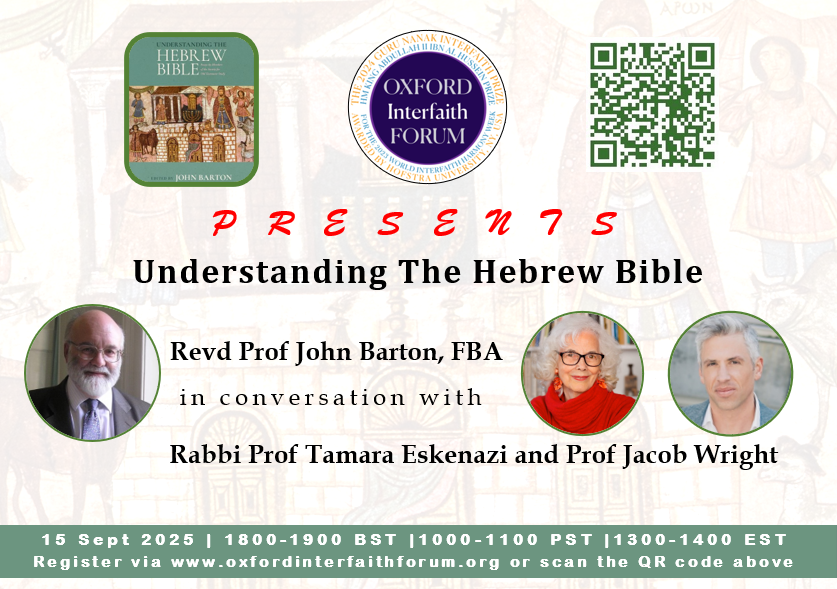
- How Have Discoveries Over the Last Two Centuries Transformed Our Understanding of Genesis 1-11?
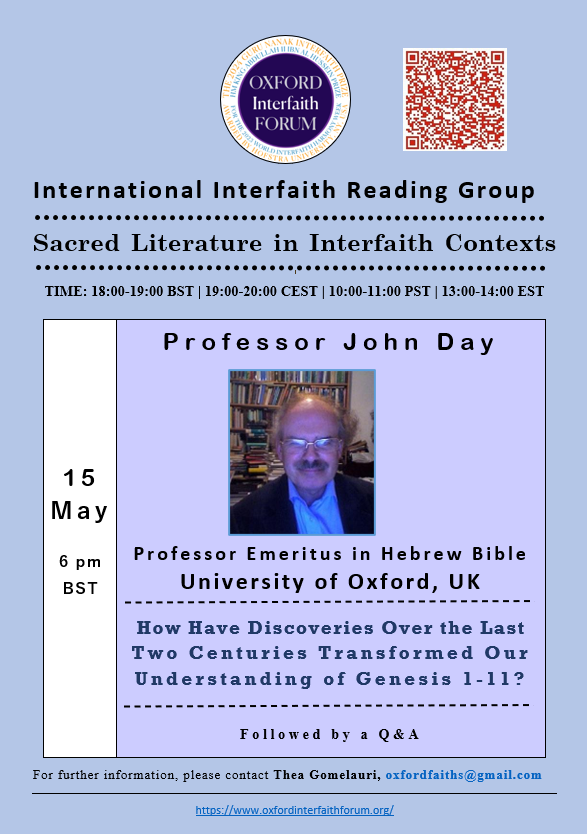
- Presentation of ‘The Qur’an: A Verse Translation’
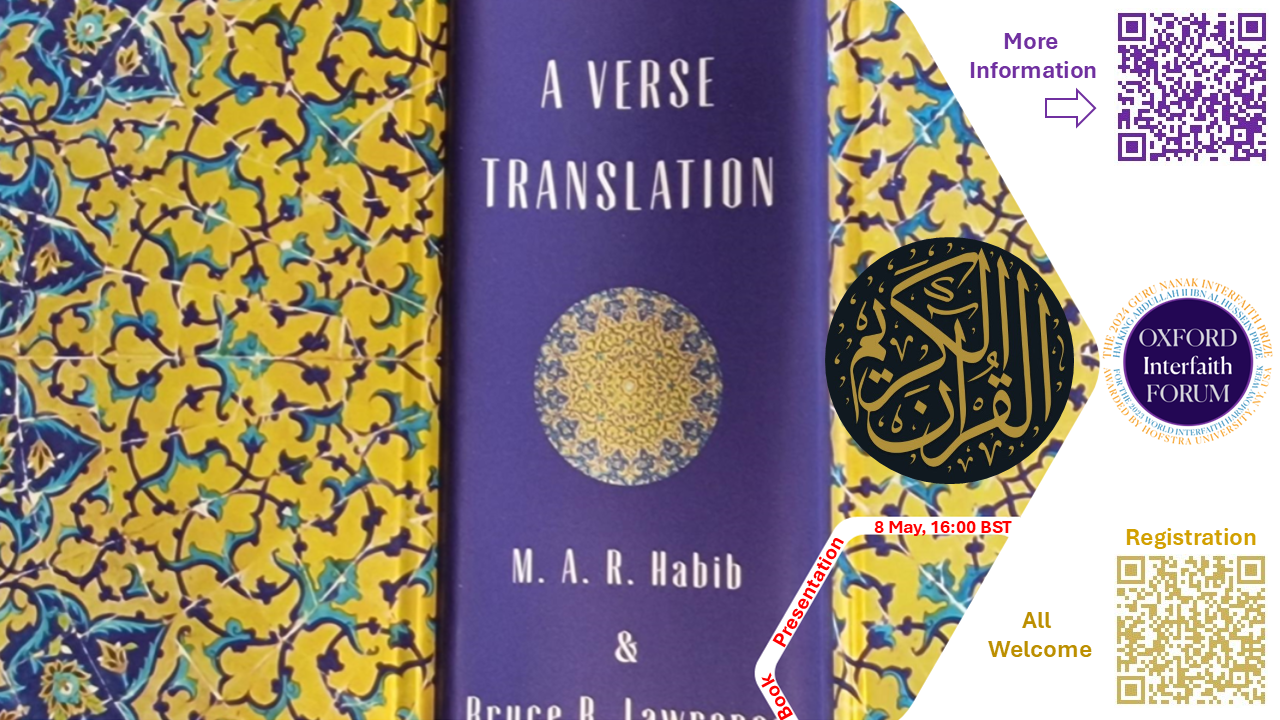
- Scriptural Vitatlity: Rethinking Philology and Hermeneutics
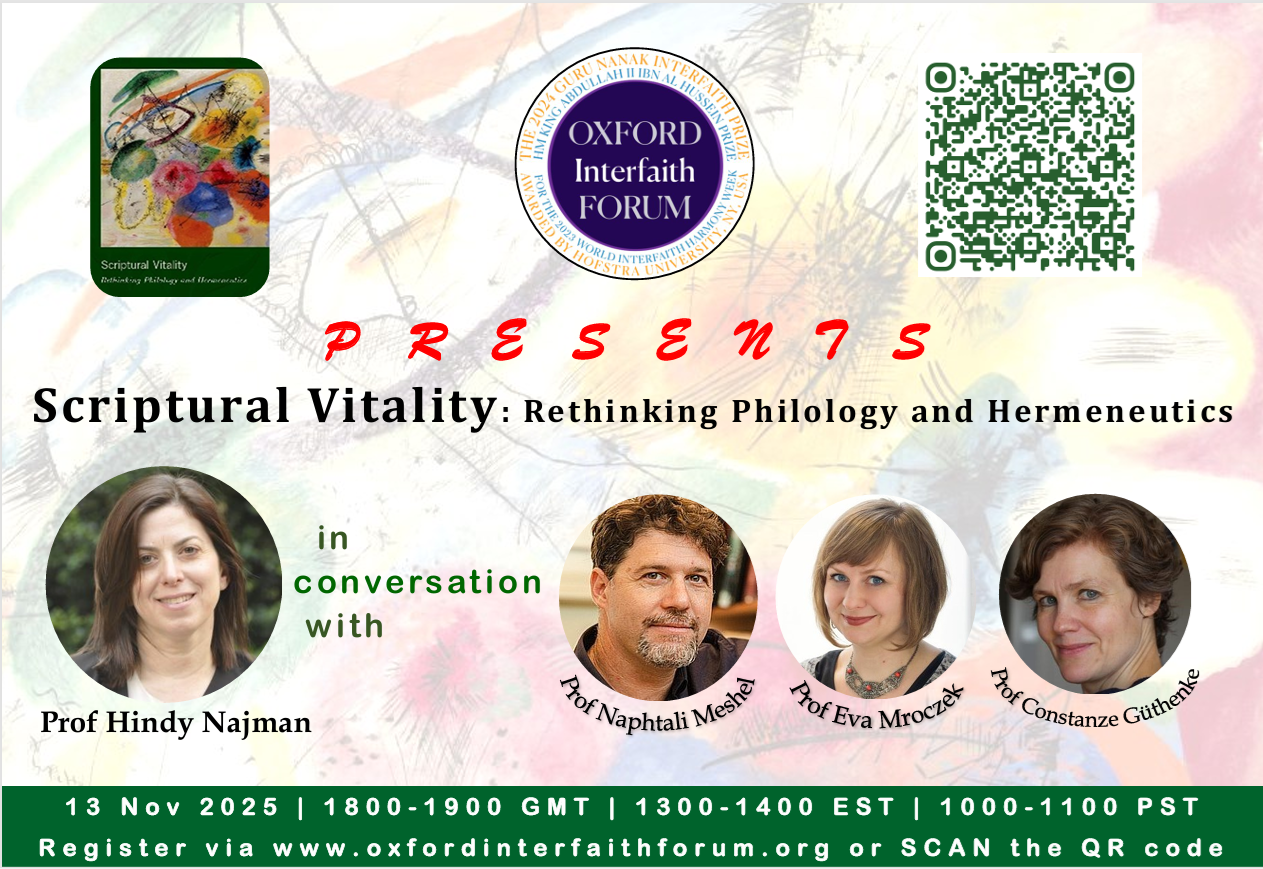
- Why The Bible Began: An Alternative History of Scripture and Its Origins
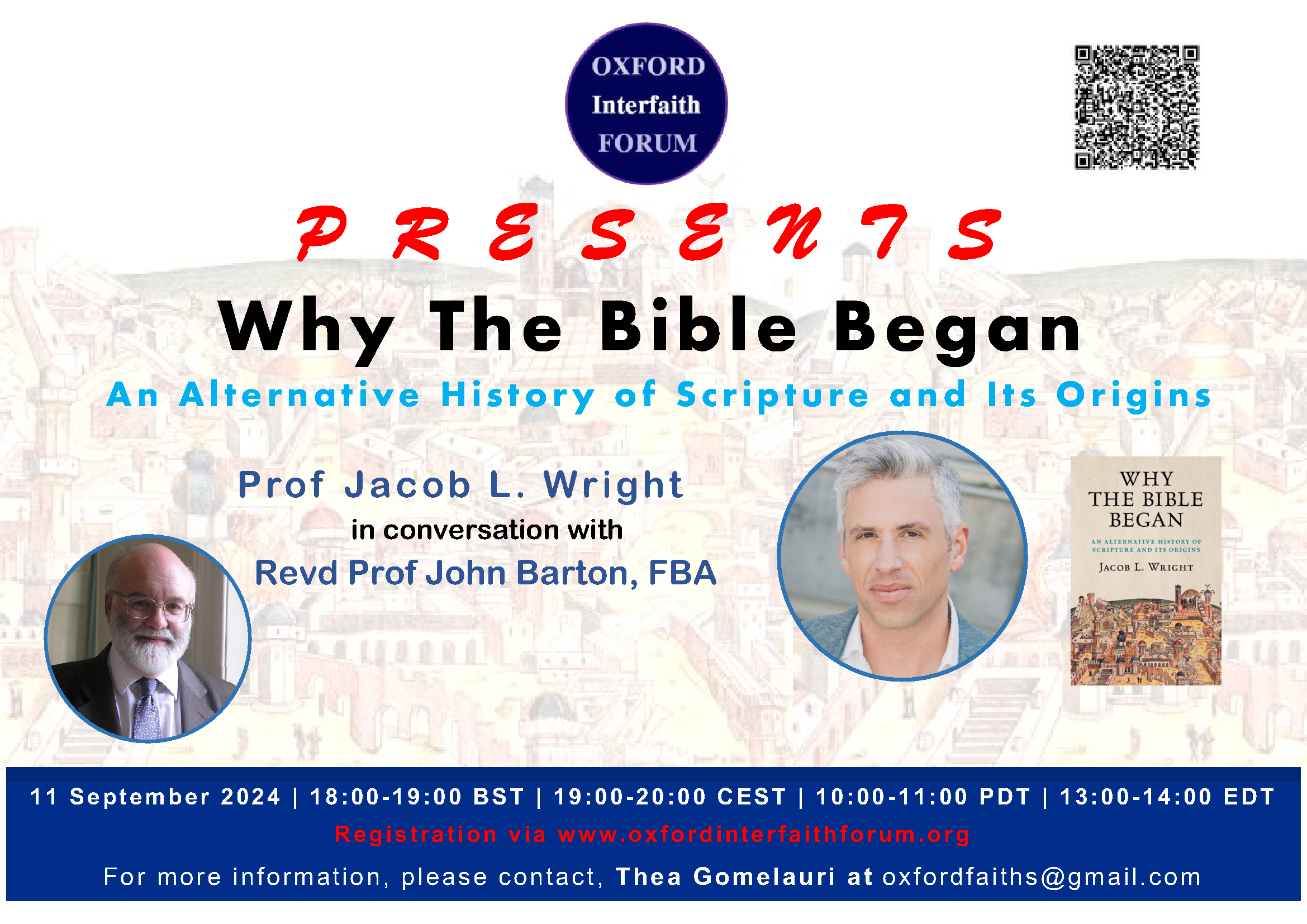
- The Talmud among Victorian Christians: Polemics and Humanism in Interfaith Encounters
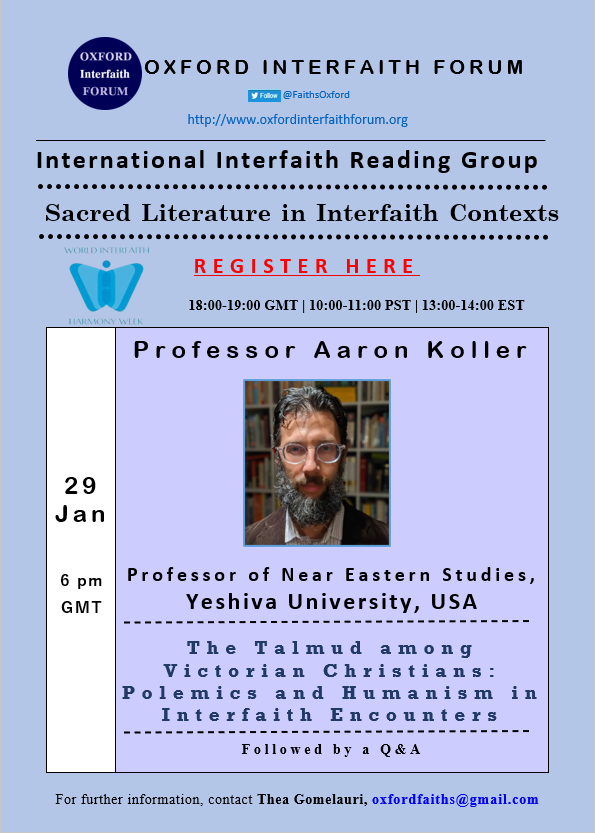
- Seventy Languages (and Translations) for Seventy Nations
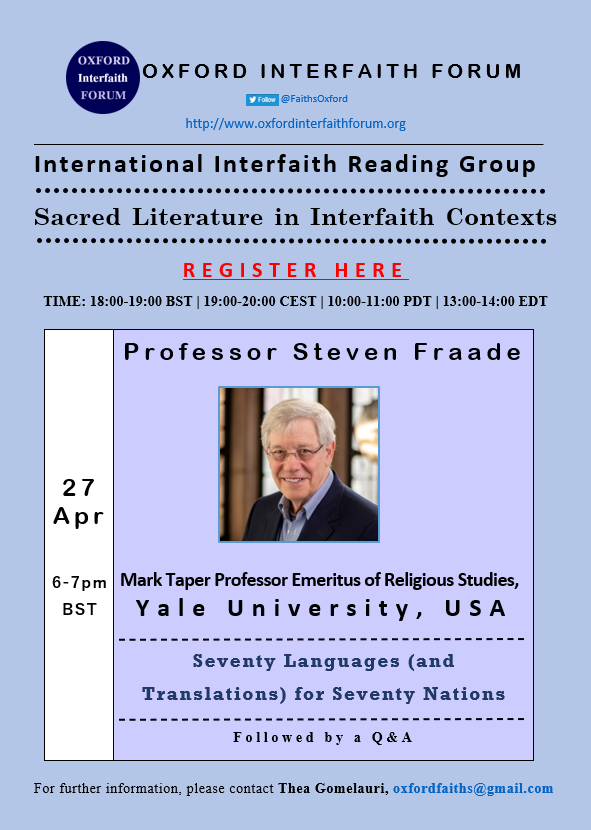
- Where does One Encounter the Divine? Dialogue Between the Sexes in the Talmud
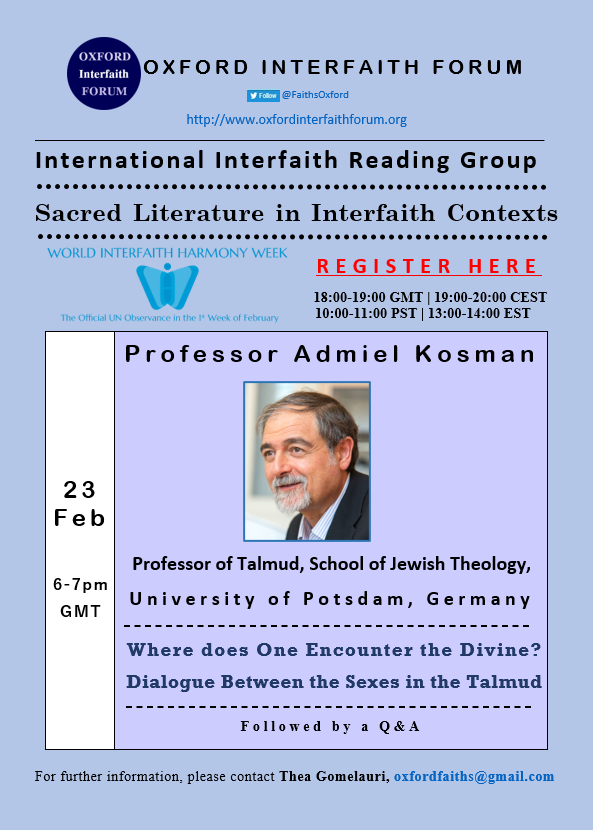
- From the People of the Book to the Books of the People: Christian Literature and the 19th Century Ottoman Turkish Literary World
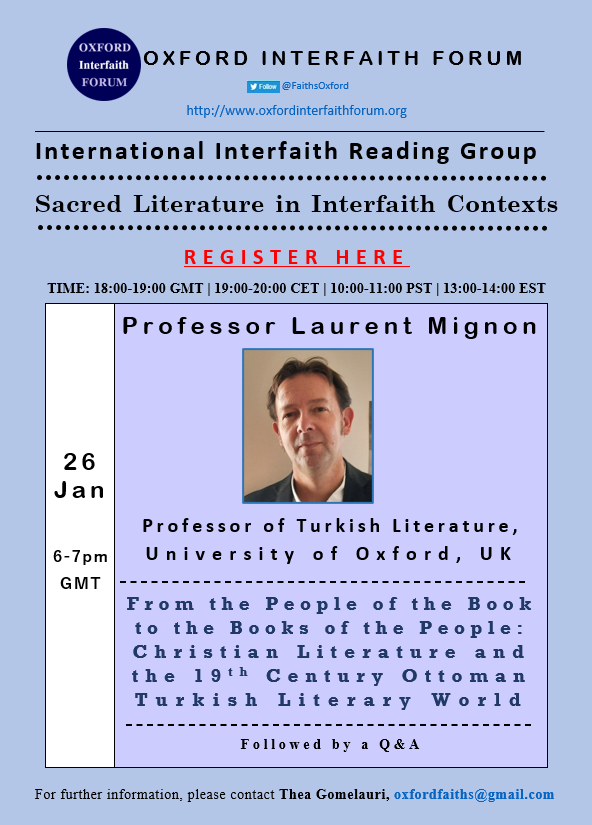
- How Christians Can Learn from the Devotional Poetry of Hindu South India
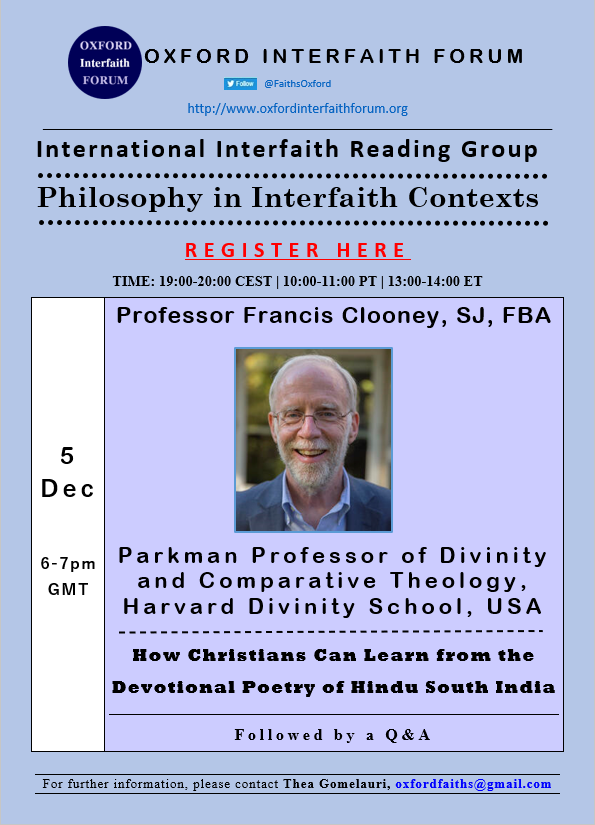
- Literary Form and Meaning in the Hebrew Bible
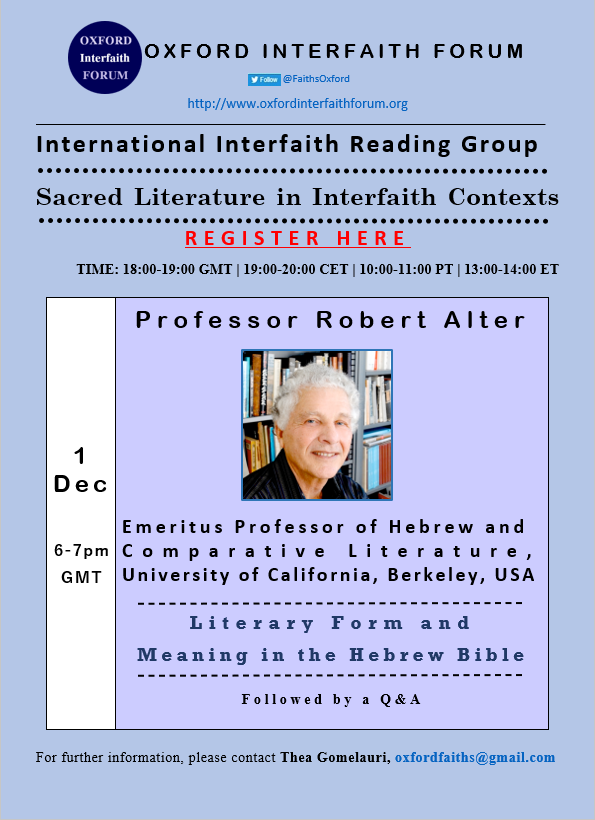
- Reorienting Christian Understandings of Judaism: Insights from Biblical Scholarship
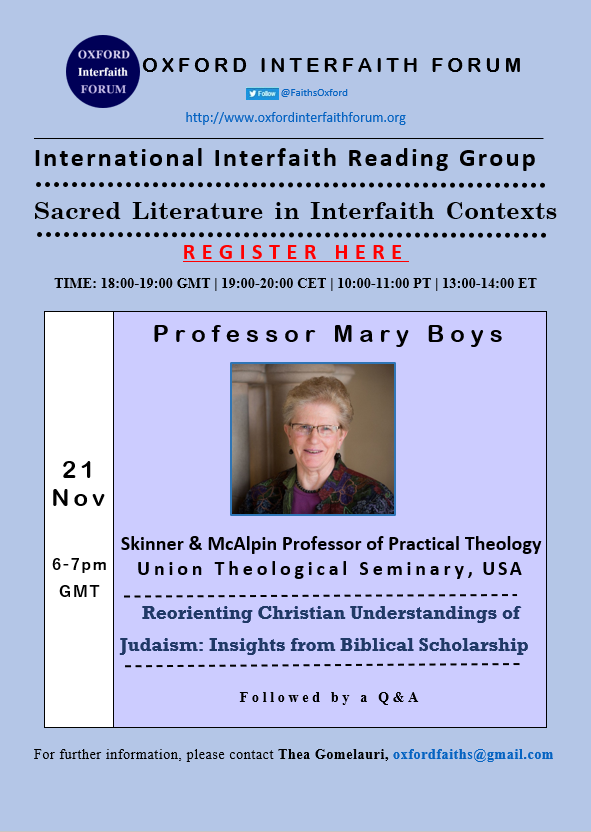
- The Revelation at Sinai in Early Synagogue Poetry
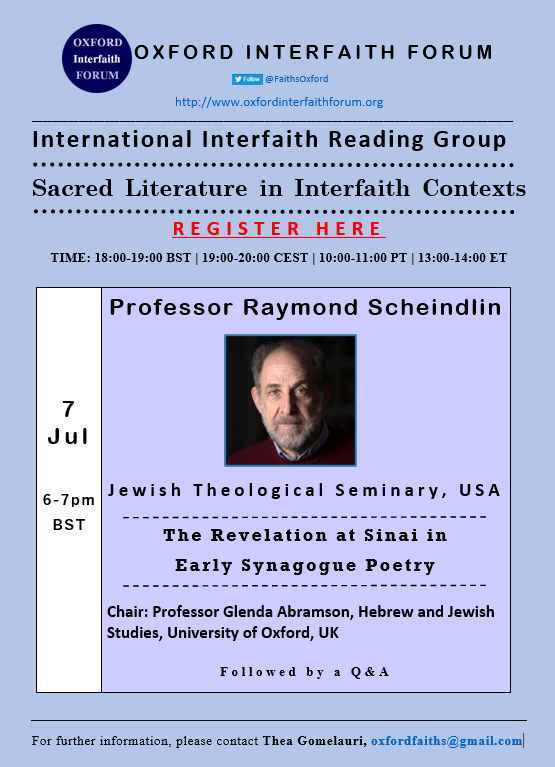
- The Book of Isaiah and the Christian Quest for Revelation
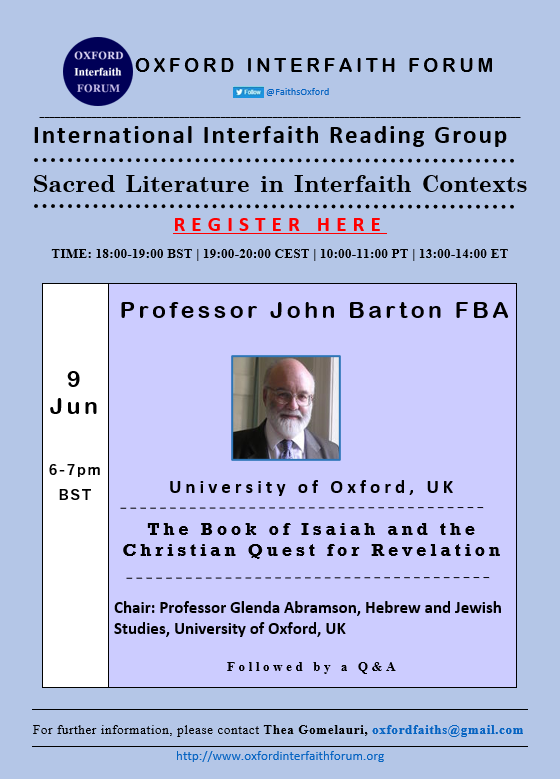
- The Qur’an and Kafka: The Trial of Jesus and Josef K
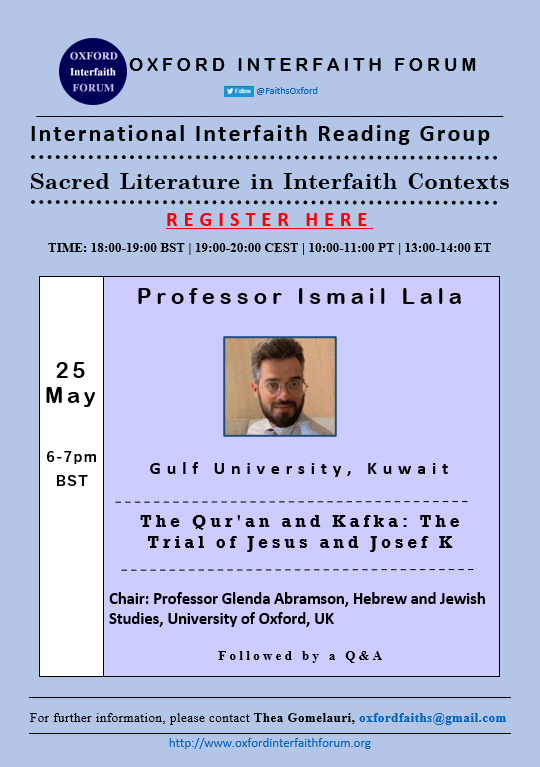
- Conceptions of Revelation in Interfaith Contexts
